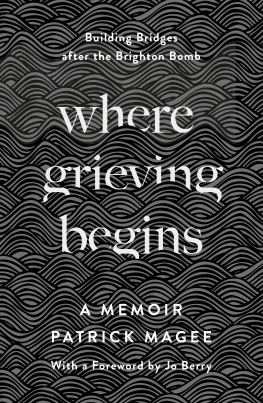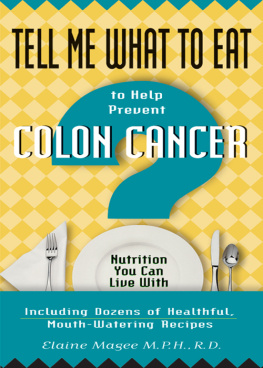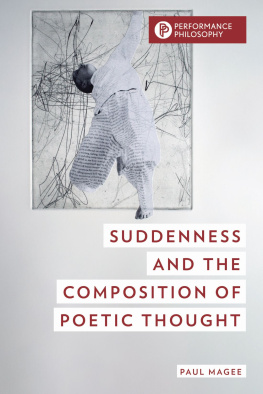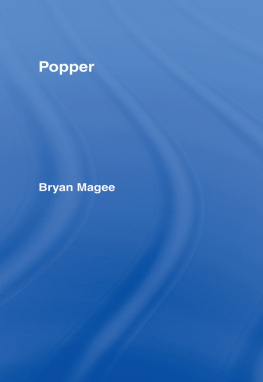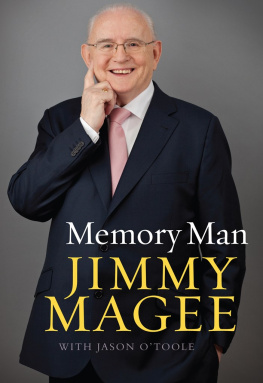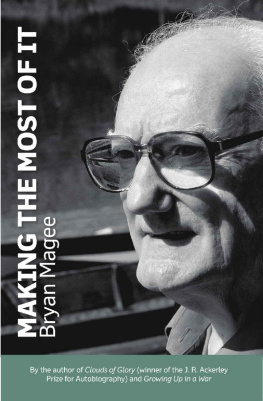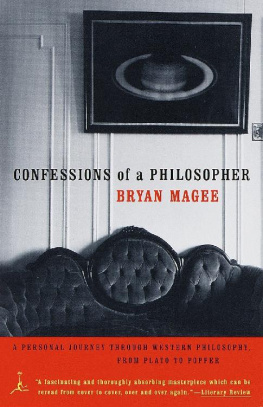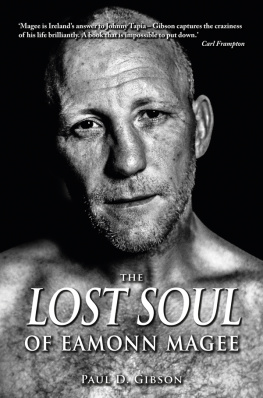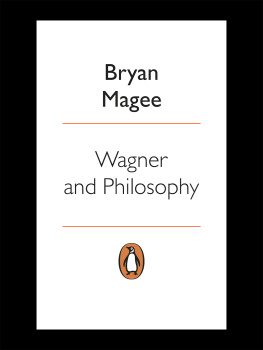Patrick Magee - Where Grieving Begins
Here you can read online Patrick Magee - Where Grieving Begins full text of the book (entire story) in english for free. Download pdf and epub, get meaning, cover and reviews about this ebook. publisher: Book Network Intl Limited trading as NBN International (NBNi), genre: Non-fiction. Description of the work, (preface) as well as reviews are available. Best literature library LitArk.com created for fans of good reading and offers a wide selection of genres:
Romance novel
Science fiction
Adventure
Detective
Science
History
Home and family
Prose
Art
Politics
Computer
Non-fiction
Religion
Business
Children
Humor
Choose a favorite category and find really read worthwhile books. Enjoy immersion in the world of imagination, feel the emotions of the characters or learn something new for yourself, make an fascinating discovery.
- Book:Where Grieving Begins
- Author:
- Publisher:Book Network Intl Limited trading as NBN International (NBNi)
- Genre:
- Rating:4 / 5
- Favourites:Add to favourites
- Your mark:
- 80
- 1
- 2
- 3
- 4
- 5
Where Grieving Begins: summary, description and annotation
We offer to read an annotation, description, summary or preface (depends on what the author of the book "Where Grieving Begins" wrote himself). If you haven't found the necessary information about the book — write in the comments, we will try to find it.
Where Grieving Begins — read online for free the complete book (whole text) full work
Below is the text of the book, divided by pages. System saving the place of the last page read, allows you to conveniently read the book "Where Grieving Begins" online for free, without having to search again every time where you left off. Put a bookmark, and you can go to the page where you finished reading at any time.
Font size:
Interval:
Bookmark:

Where Grieving Begins
Where Grieving Begins
Building Bridges after the Brighton Bomb
A Memoir
Patrick Magee
Foreword by Jo Berry

First published 2021 by Pluto Press
345 Archway Road, London N6 5AA
www.plutobooks.com
Copyright Patrick Magee 2021; Foreword Jo Berry 2021.
The right of Patrick Magee to be identified as the author of this work has been asserted in accordance with the Copyright, Designs and Patents Act 1988.
British Library Cataloguing in Publication Data
A catalogue record for this book is available from the British Library.
ISBN978 0 7453 4177 4Hardback
ISBN978 1 7868 0686 4PDF eBook
ISBN978 1 7868 0688 8Kindle eBook
ISBN978 1 7868 0687 1EPUB eBook
This book is printed on paper suitable for recycling and made from fully managed and sustained forest sources. Logging, pulping and manufacturing processes are expected to conform to the environmental standards of the country of origin.
Printed in the United Kingdom
I am grateful to David Castle and to his colleagues at Pluto Press for their insightful editorial stewardship of my memoir in trying times for all. The manuscript was submitted to Pluto before the spin-off impact of COVID-19 on the book trade, causing the publication date to be moved back from September 2020 to February 2021. I also regret missing the very enjoyable visits to their offices in Highgate, but much was seamlessly accomplished at correct social distancing.
Gratitude is due to many in grappling with the struggle to make sense of the past described herein, not least by far to my mother whose own recall was shamelessly plundered during my sadly too-infrequent visits in the final years before she died. I also honour my fathers influence and the personal accounts of other relatives.
Others no longer with us, but whose memory continues to inspire, include Martin Meehan and Ann Gallagher.
I received valued feedback and positive critique from the following who read early chapter drafts: Danny Morrison, Aly Renwick, Peter Berresford Ellis, Paul Kavanagh and Fiontainn Hargey. A particular thank you to Fiontainns mother, Anne Hargey, for her memories of the old Market.
I also greatly appreciate the wisdom and support of Dr Maeve Stokes and Dr Brian Glanville.
A special thanks is due to Brian Warfield, the chorus of whose brilliant indictment of imperialism, The Ballad of Joe McDonnell, heads .
Never least, I thank Jo Berry and Harvey Thomas, who will always inspire me to question.
And lastly, for Tessa, for her tireless support.
A memoir is such an idiosyncratic endeavour that, despite the value added by all of the above, and more, I must take full responsibility for any and all of its failings.
Patrick Magee
by Jo Berry
It is both an honour and a challenge to write this foreword; it is unusual to be asked to write a foreword for someone who killed your father. Yet I have for the last twenty years been in dialogue with Patrick Magee, the man who planted the bomb at the Grand Hotel in Brighton which killed my dad, Sir Anthony Berry, and four others.
This book is Patrick Magees memoir, from his early memories to his vision of Belfast today; he charts his joining the IRA, the appalling experience he and others endured of internment, his active engagement, his imprisonment and his release. It is eye opening for us who have only heard of this time in history from the English perspective, revealing some harsh truths that I think it is important we learn about. The last six chapters describe our first meeting and the work he has since done with me and others from around the world, engaging in peace and reconciliation.
Please read this story as one of the many truths of the conflict; no one has the objective truth of what happened. Everyone who was present has a valid story that we can hear even if we dont agree. I have empathised with people who have been enemies to each other, and some to me, and I can see that if we had lived each others lives we may have made the same choices as the other person did. It is easy to judge, make someone wrong and someone right, but the question for me is how we can listen to one another and learn from the past so violence is not used again.
I appreciate the honesty of Patricks writing and I could feel the challenging situation he found himself in Belfast. I think it is important for those outside his community to see something of the harsh reality some Catholics experienced. There are parts of the first half of the book that I found hard to read; there is much suffering and pain. I cannot help but reflect on how different my experiences were at that age. I have never felt comfortable with justification for violence and there is much in this book. The nuances and uncertainty that Patrick has sometimes expressed in our talks do not feature but I understand that he is writing for some of his community who do not feel heard. For some people he may have gone too far, for others not far enough.
His description of our first meeting captures the intensity well, and to help the reader understand my motivation, I will share a little here. Twenty years ago, I arranged to meet Pat Magee as a one-off encounter so I could look into his eyes and see him as a human being. I did not need an apology, for that wouldnt bring my dad back; I knew from meeting others who had been in the IRA that he would come with a sense of righteousness. They were the oppressed, those without power, the marginalised my dad represented power and the elite. I knew Pat would see it as a righteous war and one they had had no choice in. He did start by justifying and talking from the generic we. I listened and asked open questions to find out more of his personal story. I remember the moment when I looked into his eyes and saw how much he cared for his community; at that moment, he was no longer a faceless enemy but someone with his own story and humanity. An enemy is just someone whose story we havent heard.
I was about to end the meeting when Pat had what he now calls his epiphany moment. I remember the difference he was no longer justifying or saying the word we. He was speaking from his heart, being vulnerable and asking me about my father. He was visibly shaken and emotional; his voice had more depth and I knew I needed to stay longer. It was dawning on him for the first time that my dad had been a human being and he had killed him. He realised he had lost some of his humanity and was guilty of demonising them in the same way he accuses the Other of demonising republicans. He could hear the impact of his actions.
I had reached my limit of being able to listen after another hour, and that was when he said I am sorry I killed your father. He spoke with great feeling and conveyed how this weighed heavily in him. I say, Im glad it was you the words just popped out, and twenty years later we are still discussing what I meant.
I was acknowledging that I did not think many would have opened their hearts at that point, to feel the emotional cost of their actions. Pat has said that if I had started the meeting with blame and finger-pointing, he would have stayed within the safe place of righteousness. Instead he was disarmed by the empathy I showed. I was more curious and interested in who was behind the rhetoric than seeking revenge for what he had done to my family.
Font size:
Interval:
Bookmark:
Similar books «Where Grieving Begins»
Look at similar books to Where Grieving Begins. We have selected literature similar in name and meaning in the hope of providing readers with more options to find new, interesting, not yet read works.
Discussion, reviews of the book Where Grieving Begins and just readers' own opinions. Leave your comments, write what you think about the work, its meaning or the main characters. Specify what exactly you liked and what you didn't like, and why you think so.

